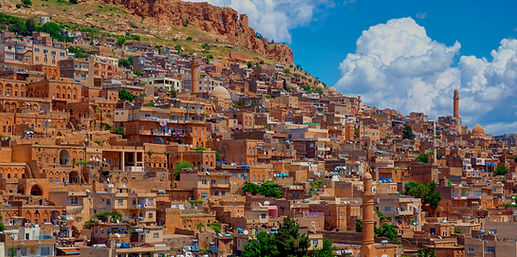Gazan families turn to chickpea paste to feed infants amid crisis
- jasonmoorebox
- Jul 31
- 3 min read

In a makeshift tent on a beach in Gaza, three-month-old Muntaha winces as her grandmother pushes a syringe filled with chickpea paste into her mouth – grainy, painful and all they have left. Ground as finely as possible, the paste still leaves the infant squirming in discomfort.
“If she could speak, she’d scream at us, asking what we’re feeding her,” said her aunt, Abir Hamouda.
Muntaha is one of countless babies in Gaza caught in a heartbreaking crisis – too young for solid food, yet starving in a place where infant formula is nearly nonexistent.
Families are forced into impossible choices, doing what they can to keep their children alive.
Infant formula has become scarce following a steep drop in aid access to Gaza.
Many women are unable to breastfeed due to malnutrition, while others have been separated from their babies due to displacement, injury, or, in Muntaha’s case, death.
Her family said the baby’s mother was hit by a bullet while pregnant, gave birth prematurely while unconscious in intensive care and died a few weeks later.
The director of Shifa Hospital described such a case in a Facebook post on April 27, four days after Muntaha was born.
“I am terrified about the fate of the baby,” said her grandmother, Nemah Hamouda. “We named her after her mother, hoping she can survive and live long. But we are so afraid – we hear of children and adults dying of hunger every day.”

Muntaha now weighs about 3.5 kilograms (7.7 pounds), her family said – barely more than half of what a full-term baby her age would typically weigh. She suffers from vomiting and diarrhea after feeding.
Health officials, aid workers and Gazan families told Reuters that many are feeding infants boiled herbs and tea, or grinding up bread, sesame seeds or legumes.
Humanitarian agencies also reported cases of parents boiling leaves in water, eating animal feed, or grinding sand into flour.
Pediatric health experts say feeding solids to babies too early can disrupt nutrition, cause gastrointestinal problems and pose a choking hazard.
“It’s a desperate move to compensate for the lack of food,” said Salim Oweis, a spokesperson for UNICEF. “When mothers can’t breastfeed or provide proper infant formula, they resort to grinding chickpeas, bread, rice – anything they can get their hands on – to feed their children. But it’s risky. These supplies are not meant for infants.”
Baby bottles without milk
Gaza’s spiraling humanitarian crisis prompted the world’s main hunger-monitoring body to warn Tuesday that a worst-case scenario of famine is unfolding – and that immediate action is needed to prevent widespread deaths.
Images of emaciated Palestinian children have shocked the global public.
Gazan health authorities have reported a rising number of deaths from hunger-related causes.
The toll stands at 154 people, including 89 children – most of whom died in recent weeks.
Amid growing international outrage, Israel announced steps over the weekend to ease aid access.
But the U.N. World Food Program said Tuesday it still was not receiving the permissions needed to deliver sufficient assistance.
Blame game
Israel and the U.S. accuse Hamas of stealing aid – a claim the group denies – and blame the United Nations for failing to prevent it.
The U.N. says it has seen no evidence of Hamas diverting significant aid.
Hamas, meanwhile, accuses Israel of weaponizing hunger – a charge the Israeli government also denies.
Humanitarian agencies say infant formula is nearly gone from Gaza’s markets.
What little remains can cost more than $100 per can – far out of reach for families like Muntaha’s, whose father lost his job when the war forced the closure of his falafel shop and displaced the family from their home.
At the pediatric ward of Al-Aqsa Martyrs Hospital in the central Gaza city of Deir al-Balah, supplies of infant formula are nearly exhausted.
One mother showed how she pours thick tahini into a bottle and mixes it with water.
“I’m using this instead of milk, to compensate her for milk, but she won’t drink it,” said Azhar Imad, 31, mother of four-month-old Joury.
“I also make her fenugreek, anise, caraway – any kind of herbs mixed with water,” she said, her voice panicked as she described how her attempts to nourish her daughter were making her sick instead.
Medical staff at the hospital spoke of helplessness, watching as children’s health deteriorates with no safe way to feed them.
“Now, children are being fed either water or ground legumes, and this is harmful,” said Dr. Khalil Daqran.
“If the hunger continues ... within three or four days, if the child doesn’t get access to milk, they will die,” he said.




Comments